Edinburgh International Culture Summit releases Ukraine Dialogue report
Political and cultural leaders from across the UK interested in strengthening Ukraine’s international standing and ready to support Ukrainian cultural colleagues and institutions affected by the war came together at this year’s Edinburgh International Culture Summit in a Cultural Leadership Dialogue co-hosted with the Ukrainian Institute.
The Summit and Ukrainian Institute have now released a report which shares the testimonies and proactive ideas at the heart of those discussions.
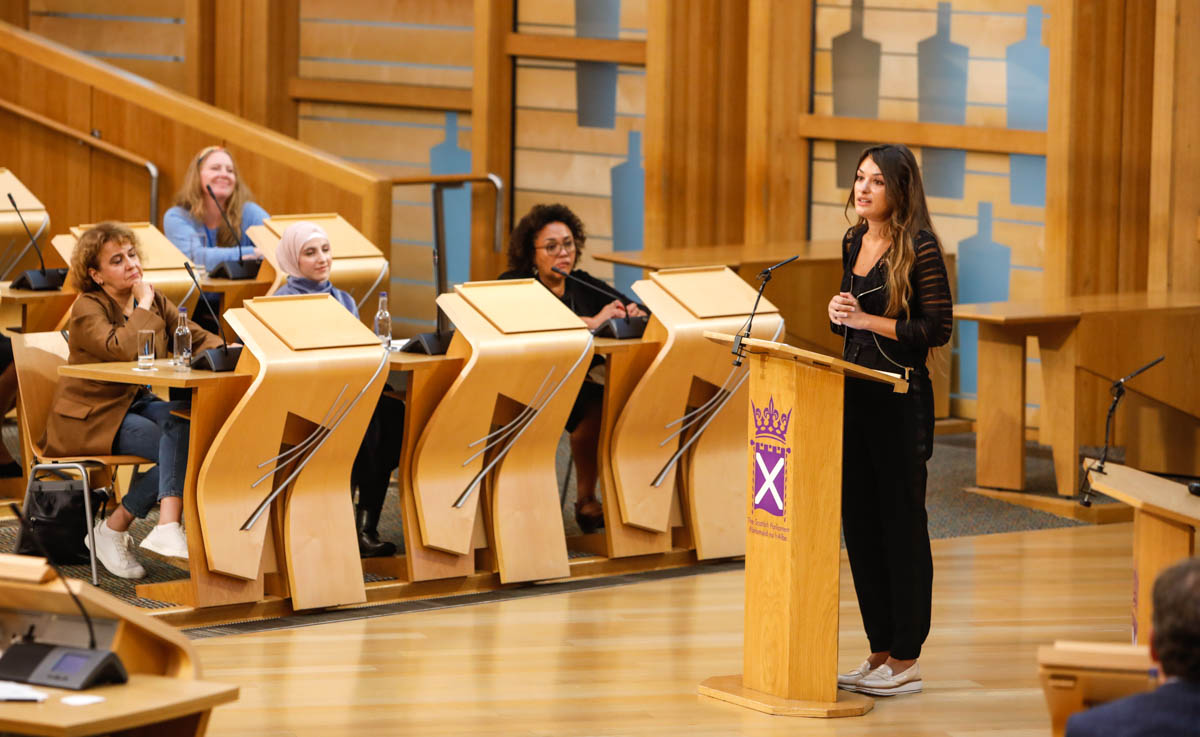
Sponsored by Clare Adamson MSP and supported by the British Council as part of the UK/Ukraine Season of Culture, the Cultural Leadership Dialogue, brought together many British and international political and cultural organisations including Creative Scotland, Edinburgh International Festival, Glasgow School of Art, High Commission of Canada, London, Korean Cultural Centre, London, Manchester International Festival, National Endowment for the Arts, USA, National Galleries of Scotland, Scottish Chamber Orchestra, The Victoria & Albert Museum, and The Welsh Government, with the delegation of representatives from the Ukrainian cultural sector.
The Ukrainian representatives suggested that the long-term survival of a free and culturally diverse Ukraine depends greatly on the willingness of the international community to amplify Ukrainian voices, increase visibility and awareness of Ukrainian culture, and to build capacity within Ukraine by forging resilient and proactive partnerships between governments, cultural agencies, and individuals.
Three strands focused respectively on People and ways to sustain and develop individual professional cultural careers disrupted by the invasion; Places and ways of repairing and enhancing Ukraine’s cultural infrastructure; and Partnerships at domestic and international levels. These discussions aimed to find practical and actionable ways to support the Ukrainian cultural sector, raising awareness about Ukrainian culture and ensuring it is at the forefront of international cultural events.
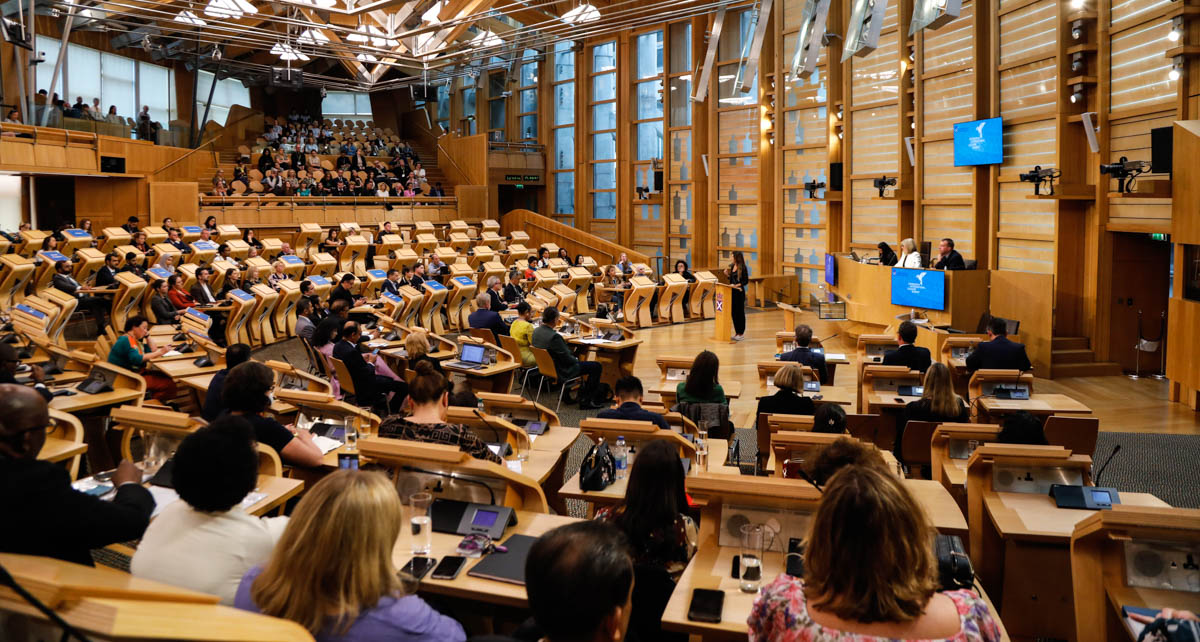
Ideas of how the international community can support Ukrainian culture include:
- Stories and perspectives from Ukraine, and other former Soviet countries should be told, shared, and amplified
- Ukraine seasons of culture could be organised across Europe and financed by host countries to help Ukraine become more understood internationally
- Strategically important countries could host branches of the Ukrainian Institute, enabling matchmaking, exchanges, programming of cultural events and other initiatives.
- It is essential to maintain active connections between Ukrainian artists inside Ukraine and those displaced outside.
- Setting up a fund for commissions of new work would be a powerful catalyst for dynamic and lasting relationships and provide vital nourishment of the arts in Ukraine.
- Cultural collaborations should be encouraged such as the Royal Conservatoire of Scotland’s links with the Kharkiv Conservatory, which is now moving from an online teaching to a Scottish government funded scheme which will bring 30 students from Kharkiv to study in person in Glasgow.
- Ukrainian cultural professionals, especially in the museums sector, have learned new emergency response skills that have allowed them to protect collections and cultural spaces. Though these approaches have been honed under the most unimaginable of situations, this new expertise should be shared with the international cultural community.
- Partnerships are not just at institutional level. Communities, schools, and individuals from younger generations can create and formalise relationships and collaborations using platforms in the model of the Erasmus programme, or bi-lateral Creative Europe, or existing networks such as European Festivals Association, International Society for Performing Arts, IETM.
Further and more detailed information can be found in the report here
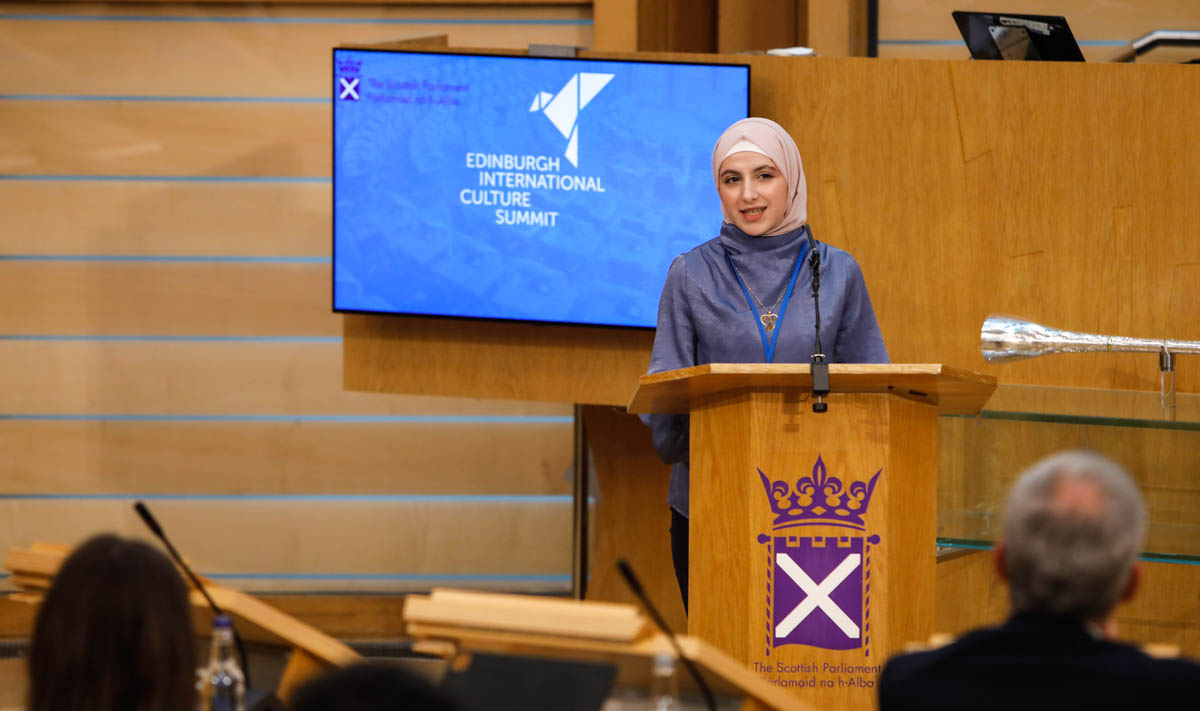
Galyna Grygorenko, Deputy Minister of Culture and Information Policy, Ukraine Government, said: “The Cultural Leadership Dialogue was a successful step in growing mutual understanding. For a long time, Ukraine has been a white spot, unknown to wider audiences and underrepresented on international scenes.
“I believe that the connections established during the Edinburgh International Culture Summit, as well as awareness about the needs and urgency of protection of cultural ecosystem in Ukraine, will be our shared agenda. We are defending not only our right to freedom, but also protecting Ukrainian culture and heritage which is an integral part of the world culture.”
Volodymyr Sheiko, Director General, Ukrainian Institute, said: “Strengthening of cultural relations between people and institutions in Ukraine and other countries is crucial to make Ukraine better understood and supported internationally. Such platforms as Ukraine Cultural Leadership Dialogue help build mutually beneficial relationships between key stakeholders of this process and establish Ukraine as a full-fledged participant of international cultural relations.”
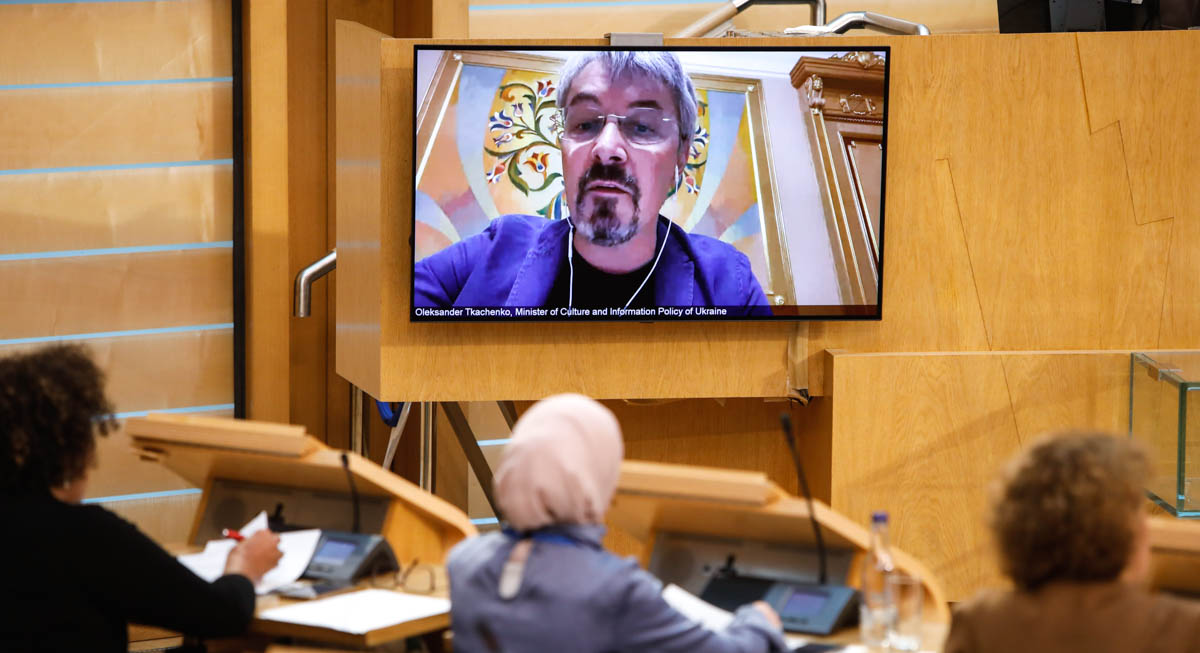
Clare Adamson, Convenor for the Constitution, Europe, External Affairs and Culture Committee, Scottish Parliament, said: “Scotland has opened our hearts and our homes to the Ukrainian people during the crisis caused by the illegal attacks on their country and their culture. Our challenge to the Scottish Government, our local authorities, national institutions and culture sector is to ensure that the plight of Ukraine is in their minds, and that all opportunities to build cultural links, both in Scotland and in Ukraine, are embraced through joint working, projects and dialogue.
David Codling, Director, UK/Ukraine Season of Culture, British Council, said: “An onslaught against Ukrainian culture was an explicit and declared intention of the February 2022 invasion. Art and cultural practice defy and resist the aggressor because they reflect and express distinct collective memories and symbolism.
“The UK Ukraine Season, devised in partnership by the Ukrainian Institute and the British Council, explores exchanges and collaboration between different forms of cultural practice and, as it looks to the future, celebrates the shared values of free expression and independent critical discourse which are fundamental to democracy.”
Sir Jonathan Mills, Programme Director, The Edinburgh International Culture Summit, said: “In producing this Dialogue, we were only too aware of the enormous personal sacrifices, time, and effort made by all members of the Ukrainian delegation joining us in Edinburgh. I hope Summit 2022 showed them how many people across Europe and the world care about their culture and continue to celebrate it.”
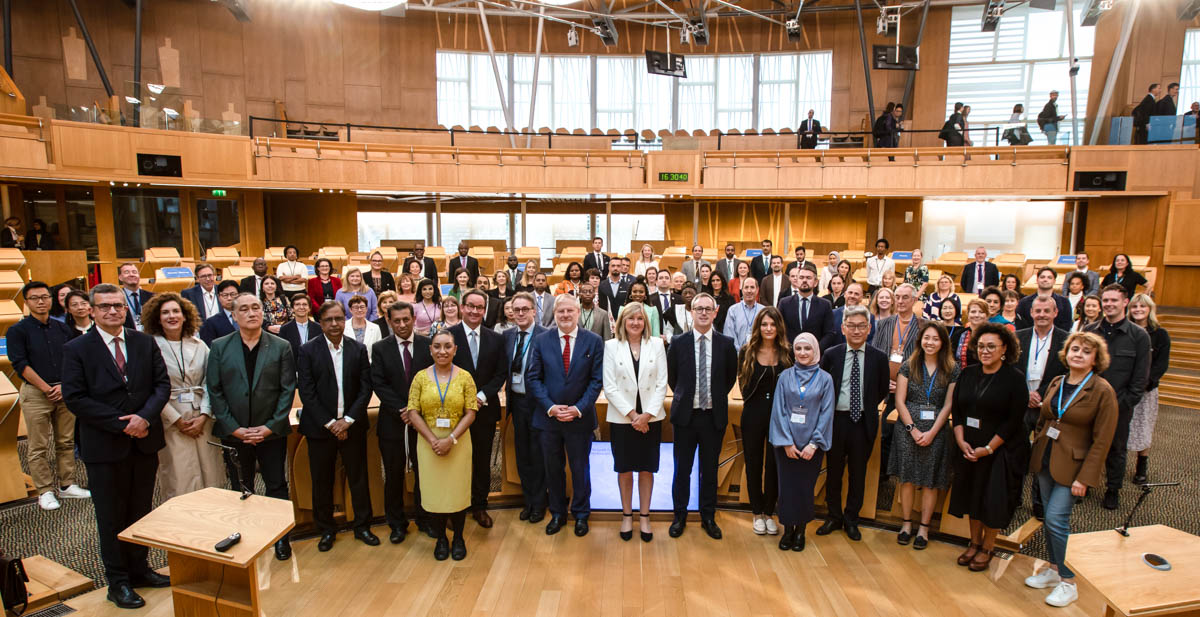
Pic-Andrew Cowan/Scottish Parliament. 27 August 2022.